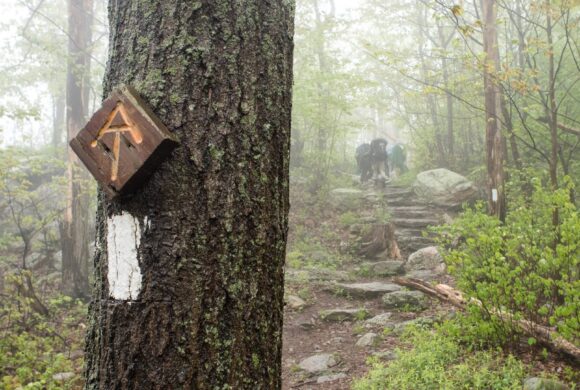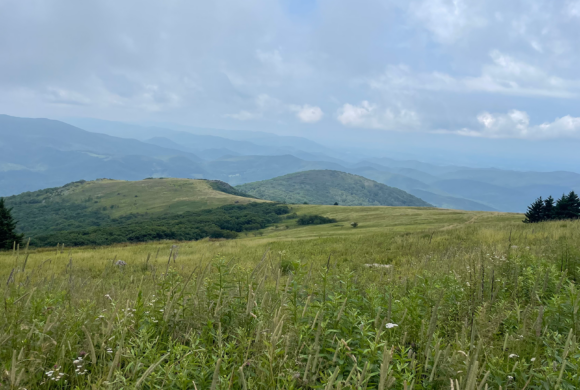Marking the ATC’s Centennial
The Appalachian Trail Centennial Act
In July 2024, U.S. Senators Tim Kaine (D-VA) and Thom Tillis (R-NC) and U.S. Representatives Mike Lawler (R-NY) and Don Beyer (D-VA) introduced the Appalachian Trail Centennial Act, which reinforces that National Scenic and Historic Trails are partnership public lands where non-governmental organizations (NGOs) play a critical role as cooperative managers.

For nearly 100 years, the Appalachian Trail Conservancy has been the standard bearer for cooperative trail management. The Appalachian Trail Centennial Act recognizes what the ATC has learned over the decades – no single entity can manage a National Scenic or Historic Trail on its own. Instead, collaborative and flexible partnerships are necessary to care for these spread-out and heavily used conserved public lands.
This legislation helps better coordinate resources and partners for our National Trails, bolsters land protection, and requires a series of studies to gather data and information on the visitation and economic benefits of National Trails to ensure these special places are maintained and conserved for the next generation.
The Appalachian Trail Centennial Act will:
- Authorize Designated Operational Partners for National Trails: The legislation will statutorily establish a class of NGO partners for each National Trail, modeled after the work currently being done by organizations like the ATC, and recognize the ATC as the first. The Designated Operational Partner distinction will enable each NGO more flexibility in providing for the public good, implementing their responsibilities, and expanding the potential for philanthropic support for their work.
- Bolster Land Protection: The legislation fosters stronger partnerships to address the growing need for land protection within greater Trail landscapes. Because of the scale of National Scenic and Historic Trails, without dedicated attention and local engagement, it is very difficult to build out their conserved Corridors. This legislation will add replicable structure and direction for the agencies to coordinate and advance land and resource conservation to support the National Scenic and Historic Trails as large landscape conservation projects.
- Study and Monitor Visitation and Economic Impact: The legislation will establish a required process to track visitor levels and usage patterns on National Scenic and Historic Trails, including group use, as well as to measure the local economic benefits of trail visitation. This data will be useful for Trail planning and management, will inform efforts to improve the visitor experience and alleviate pressure on high traffic areas, and provide insight for Trail communities and businesses that provide services for recreational users.
- Better Coordinate Partners: The legislation will increase the length of agreements between each National Scenic and Historic Trail’s Designated Operational Partner – like the ATC – and the National Parks Service and U.S. Forest Service to 20 years. It will also streamline funding processes, support volunteer needs, and encourage consultation among government entities, trail administrators, and designated partners to ensure greater stability.

Resource
ATCA Info Sheet
Learn more about the Appalachian Trail Centennial Act and the A.T.'s Cooperative Management System.
DOWNLOAD PDF
Resource
Critical Legislation That Protects The A.T.
Learn more about Federal legislation that protects the Appalachian Trail.
DOWNLOAD PDF